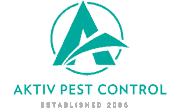Identifying The Pests
Before you call in the experts, you may need to find out what you are dealing with. Check out the most common pests that you may encounter on a daily basis!
Hornets
Vespa Crabro

The ‘hornet’ is a large species of social wasp with queens averaging around 3 cm in length. They emerge in April and nests are initiated, usually in hollow trees or similar cavities, in May with the first workers appearing around June. New queens and males emerge during September to October, mate and disperse, with the males dying and the queens seeking winter hibernation sites.
Wasps
Vespula Vulgaris

Bed bugs are small, oval wingless insects which are visible to the naked eye and you may see skin casts they shed. The principal host is humans, though other warm-blooded animals can host them as well. Found in human habitations throughout the world. They either crawl or be passively transported in clothing, luggage, furniture, books & other objects. Bite marks very much like a mosquito bite.
Brown Rat
Rattus Novegicus

Generally brownish-grey in colour with paler underside. Their tail is shorter than their body and is nearly always darker on top. Their snout is blunt and their ears are small and furry. They are large, robustly built animals with an average weight of 340 g. Droppings are blunt spindle shaped, with an average length of 1½- 2 cm. They are usually found in groups. They are omnivores but prefer cereals & water.
House Mouse
Mus Domesticus

The common house mouse is small brownish-grey with a thin tail which is much longer than the whole body. Their snout is pointed and their ears small with fine hairs. They have a small, slender appearance with an average weight of 25 g. Droppings are pointed, thin spindle shaped with an average length of 5 mm. They are omnivores with are preference for cereals. Their behaviour is erratic!
Ants
Formicidae

Over 9000 types of ants are found worldwide and range in size from 1 mm to 1 cm long. Ants are social insects, and their colonies can be very large, containing many thousands of individuals of different castes. They seek out sweet foods for the queen and larvae, and in doing so often infest properties. Infestations of Pharaoh’s Ants which are red or light brown in colour are increasing.
Fleas
Siphonaptera

Adult fleas live exclusively as parasites of warm-blooded animals, like cats and dogs. Cat fleas are responsible for 75% of all flea infestations. Cat and dog fleas will feed from humans usually when there are no animals around, but this is not their first choice. Fleas can be carried into the house through visitors or their pets. Moving into a new property, you could inherit a flea problem.


